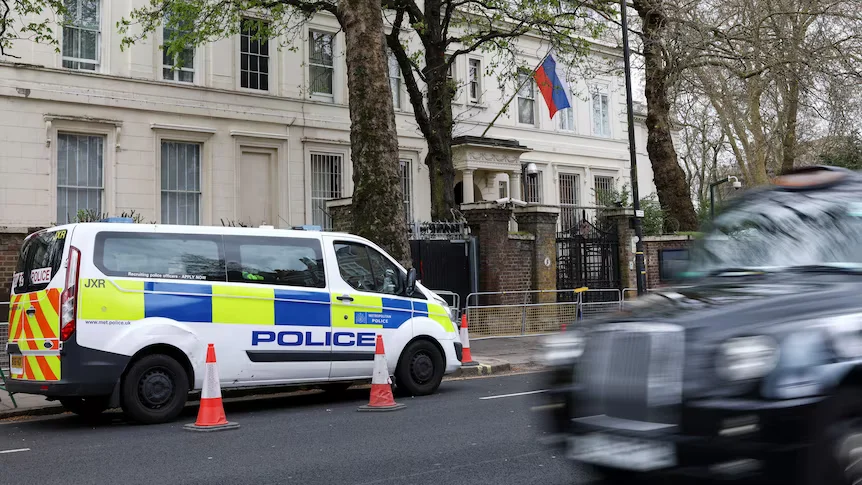In a development that echoes the cloak-and-dagger world of espionage, the United Kingdom’s counter-terrorism agency has apprehended and formally charged three individuals suspected of being operatives involved in spying activities on behalf of the Russian government. This revelation has ignited discussions about state-sponsored threats and espionage concerns in the contemporary geopolitical landscape.
As reported by the BBC, the trio of individuals, all of Bulgarian nationality, were taken into custody in February and have since been held in detention. Their alleged links to the Russian security apparatus are at the center of allegations that they were found in possession of counterfeit identity documents with an “improper intention”.

The deceptive arsenal of forged documents spans a wide array of credentials, ranging from passports to ID cards, encompassing countries as diverse as the UK, Bulgaria, France, Italy, Spain, Croatia, Slovenia, Greece, and the Czech Republic.
The operation leading to the arrests was executed by diligent counter-terrorism detectives affiliated with the Metropolitan Police. Operating under the purview of the Official Secrets Act, which governs espionage-related matters, these detectives wield the responsibility of safeguarding national security.
The three individuals implicated in this intriguing case are Orlin Roussev (45), whose current location is Great Yarmouth, Norfolk; Bizer Dzhambazov (41), and Katrin Ivanova (31), both of whom are based in Harrow, a district in northwest London. Their substantial presence in the UK, spanning across various employments and suburban communities, adds layers of complexity to the unfolding narrative.
Orlin Roussev’s prior business engagements with Russia, particularly his involvement in intricate aspects of the financial sector, have piqued interest. His LinkedIn profile alludes to roles connected to signals intelligence, a realm tied to communication interception. Notably, he has also advised the Bulgarian Ministry of Energy, suggesting connections that extend beyond mere professional activities.
Meanwhile, in Harrow, Bizer Dzhambazov and Katrin Ivanova formed a couple. Dzhambazov’s role as a hospital driver contrasts with Ivanova’s position as a laboratory assistant within a private healthcare enterprise. Her responsibilities included assisting Bulgarian citizens abroad, acquainting them with British customs and cultural norms.
The arrest has reverberated in the public sphere, raising concerns about escalating espionage threats, particularly those linked to Russia. The UK has experienced high-profile incidents in recent years, including the 2018 poisoning of former double agent Sergei Skripal and his daughter, along with the tragic fatality of Dawn Sturgess due to exposure to the Novichok nerve agent.
Scheduled for trial at London’s Old Bailey in January, these defendants will have their day in court, as the legal proceedings aim to unearth the truth behind their alleged activities.
This arrest underscores the ongoing challenges presented by the realm of espionage, reaffirming authorities’ steadfast commitment to upholding national security amidst a landscape of evolving threats.




